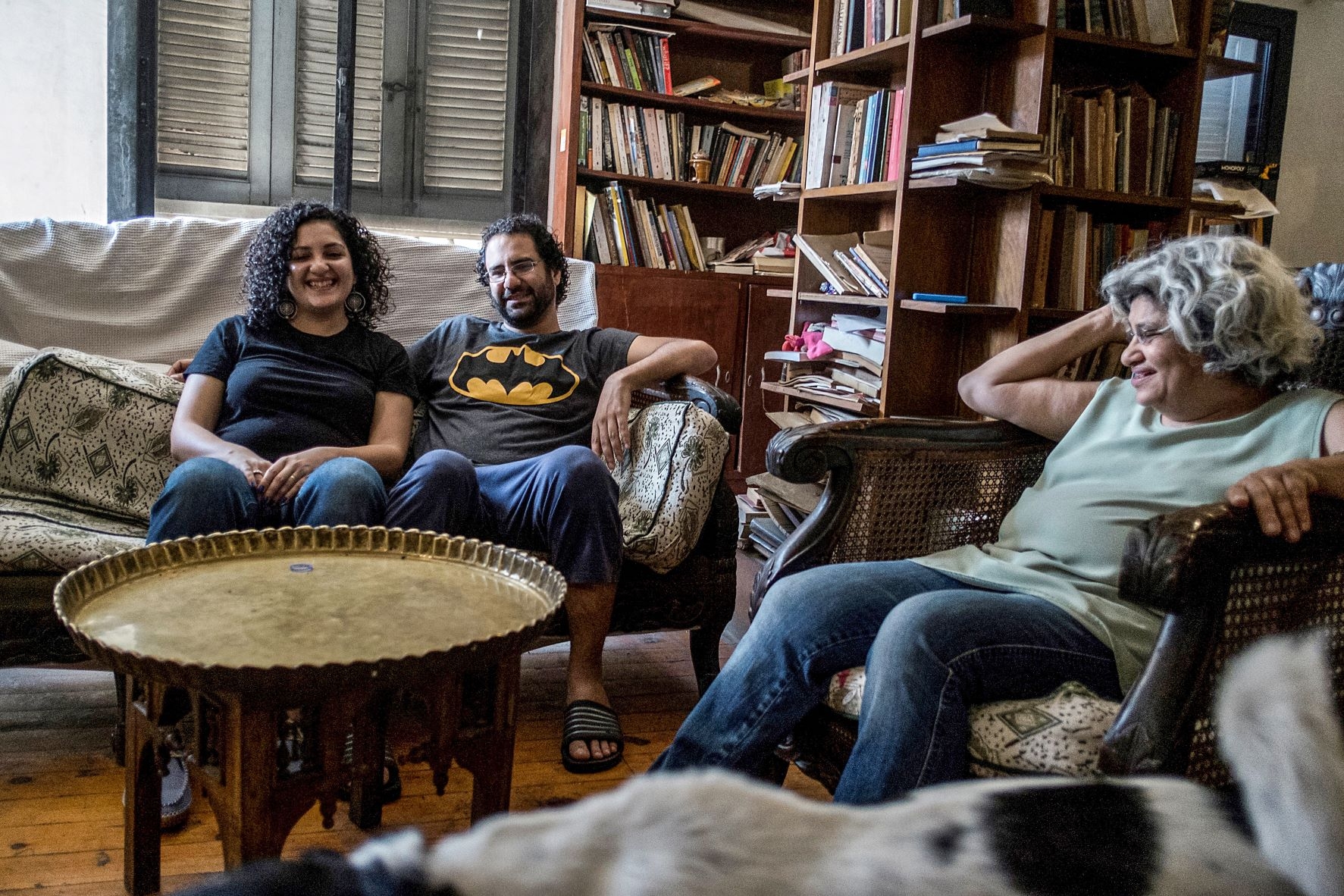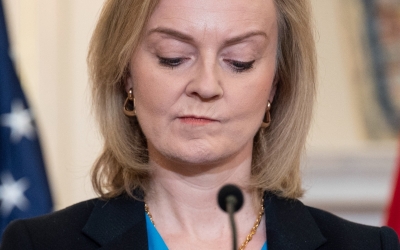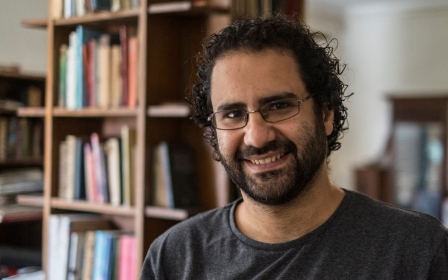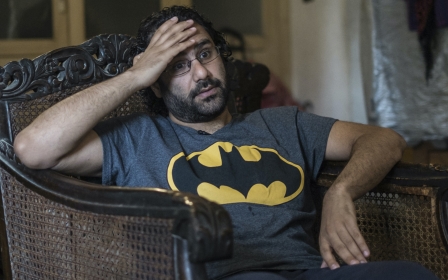Egypt: Sister of activist Alaa Abd el-Fattah announces solidarity hunger strike

The sister of jailed Egyptian activist Alaa Abd el-Fattah has begun a hunger strike in solidarity with her brother, who has himself spent more than 70 days on his own fast in protest at his jail treatment.
In a post on Facebook on Wednesday, Mona Seif said she had visited her brother in prison for the first time since 1 May and was shocked at his frail condition, saying he had "lost a lot of weight."
Abd el-Fattah, who was an icon of the 2011 Egyptian revolution, has spent eight out of the last 10 years in jail on a range of charges.
While incacerated in December 2021, he was sentenced to five years in prison by an emergency state security court on charges of spreading "false news", in a trial widely condemned by human rights defenders. The evidence used against him was a retweet.
He began a hunger strike on 2 April and was that same month granted British citizenship through his mother, Laila Soueif.
New MEE newsletter: Jerusalem Dispatch
Sign up to get the latest insights and analysis on Israel-Palestine, alongside Turkey Unpacked and other MEE newsletters
'I , Alaa's sister, will use my body to show the [British] FCDO officials what's happening to Alaa’s body, and to echo his hunger strike'
- Mona Seif, Abd el-Fattah's sister
However, his sister wrote on Facebook that the UK government had so far refused to acknowledge his strike and said that the foreign office was not doing enough to ensure consular access - so far denied for more than six months - for one of their citizens in prison.
"If the Egyptian regime think they can obscure Alaa's hunger strike, and the British government is willing to tiptoe cautiously around the severity of the situation, then I, Alaa's sister, will use my body to show the FCDO (foreign office) officials what's happening to Alaa’s body, and to echo his hunger strike," she wrote.
"Let's see how long they can pretend not to notice the hunger strike of the sister of an arbitrarily detained British national, a man who was tortured in prison, and to whom they owe the duty of legal access and protection... a sister they have to meet in person."
Not doing enough
Abd el-Fattah's family had hoped that his being granted British citizenship would lead to increased pressure on the Egyptian government, but so far there has been little movement.
Last month, a group of UK MPs sent a letter to British Foreign Secretary Liz Truss calling on her to do more to help the Egyptian activist.
The letter said he was being held in "inhuman" conditions and had for two and a half years been deprived of "reading materials, exercise, sunlight or bedding".
It called on the government to secure consular access to him, transfer him out of maximum security prison and press for his release.
"It will not be to anyone's advantage if the life of a prominent, secular, pro-democracy figure were to be lost," it added.
Concerns were raised last year that Abd el-Fattah's conditions were such that he had been put in a "suicidal" state.
During his incarceration in Tora Prison, he was denied reading materials, a bed or even a clock.
He has since been transferred to the Wadi El Natrun prison complex north of Cairo, where his conditions have reportedly improved, including having access to a bed.
His family have said there is also now a camera in his room, which meant his health could be monitored in relation to the hunger strike.
However, they have been concerned that the UK is refusing to fully pressure the Egyptian government over the activist's condition as they fear damaging trade relations, reportedly worth billions of dollars.
Speaking to Middle East Eye last month, Abd el-Fattah's aunt Ahdaf Soueif said that the UK risked "damage to its reputation" if it failed to pressure the Egyptian government to release Abd el-Fattah.
"The UK should not accept that top level representations to a country that is an ally and a friend are not responded to with alacrity and good will," she said.
"The UK should not accept that its own declared commitment to human rights and fair processes are brought into question by an ally and a friend."
Middle East Eye delivers independent and unrivalled coverage and analysis of the Middle East, North Africa and beyond. To learn more about republishing this content and the associated fees, please fill out this form. More about MEE can be found here.





